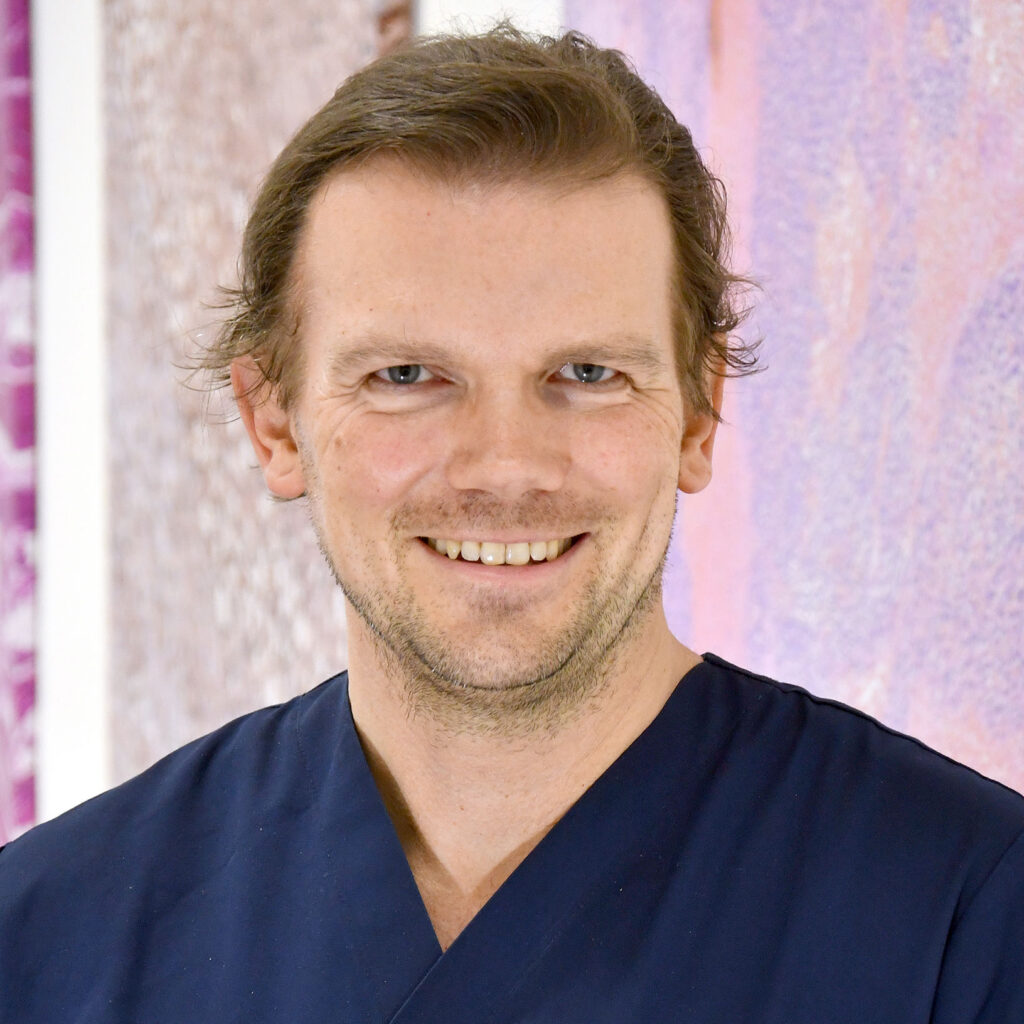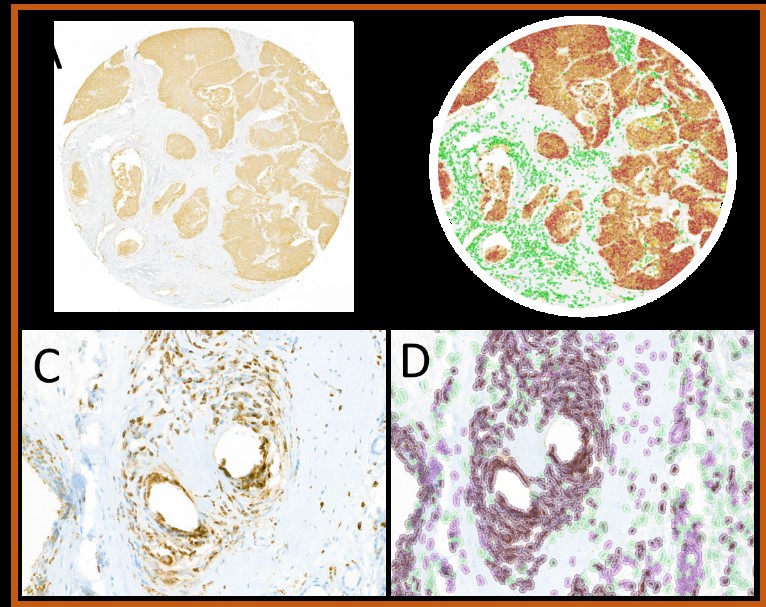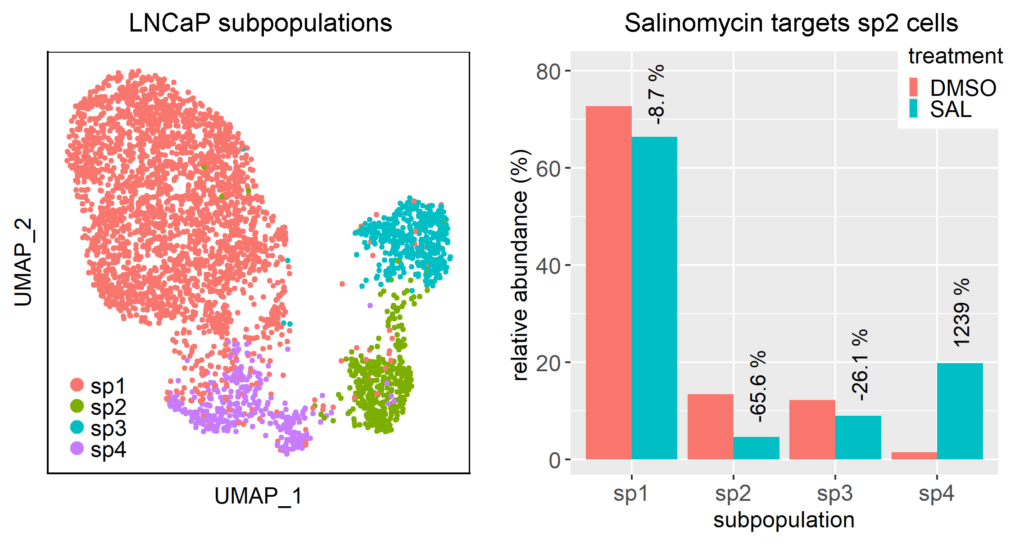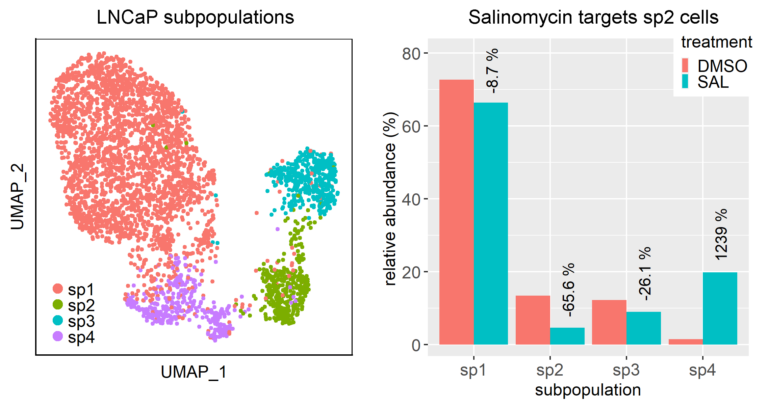
Müllerstraße 44
6020 Innsbruck
Fax: +43 512 9003 73301
Email: pathologie@i-med.ac.at
Website: https://www.i-med.ac.at/pathologie/
Research Branch (ÖSTAT Classification)
301101, 301103, 301105, 301107, 301108, 301405, 301904, 304002
Keywords
biobank, Biobanking, digital pathology, haematopathology, molecular pathology, neuropathology, Oncology, oropharyngeal pathology, pathology of infections, transplantation, and uropathology
Research Focus
The research groups at the institute translate basic research questions into clinical applications and clinical needs into basic research, in which various medically relevant questions are investigated.
General Facts
The Institute of Pathology, Neuropathology and Molecular Pathology focuses on research questions based upon a large archive consisting of formalin-fixed paraffin-embedded material (FFPE), which is located at the institute and makes us an important connecting link between basic science and clinical research. This translational research is reflected by the close cooperation with clinicians and researchers in the fields of oncology, surgery, radiology, nuclear medicine, neurology, dermatology, head and neck as well as craniomaxillofacial surgery, dermatology, gynaecology and many other departments.
Research
Main topics include: tumour biology and mechanisms of treatment resistance, evaluation of biomarkers to predict individual risk and prognosis, support diagnosis and assist in treatment allocation, as well as identification of potential therapeutic targets using molecular pathological methods. Current projects focus in eIFs in oncology and examine their influence on prognosis and therapy in solid tumours with a special emphasis in lung and uorpathology as well as in haematological neoplasms. Digital pathology is increasingly implemented for analysis and modern molecular imaging techniques are applied in collaborations with other institutions.
Group statement:
Our success is based on excellent collaboration both with our pre-clinical and clinical partners in Innsbruck and externally.
Assoc. Prof. Priv. Doz. Dr. med univ. Andrea Brunner-Véber
As a haematopathologist, my research focuses mainly on the molecular pathology of lymphomas with plasmacytic differentiation and its impact on diagnosis and treatment. Further projects dealt with the role of immune microenvironment and eIFs in lymphomas, such as diffuse large B-cell-lymphoma and follicular lymphoma and the implementation of digital image analysis and molecular imaging techniques, such as mid-infrared (MIR) microscopic imaging and near-infrared (NIR) hyperspectral imaging techniques and 3D laser scanning in the field of (haemato)pathology. This includes close cooperation with the University Clinics of Internal Medicine V, Haematology & Oncology and the University Clinics of Orthopaedics and Traumatology, where the IR hyperspectral-imaging unit of PD MMag. Dr. Johannes Pallua MSc PhD supports me in the exploration of this technique in diagnosing reactive and neoplastic conditions. Digital image analysis of immunohistochemistry is an essential part of my work. I also bring this expertise to bear in collaborations, e.g. with the University Clinics for Plastic Surgery, analysing the immune microenvironment in capsular fibrosis of breast implants or the University Clinics of Internal Medicine V, Haematology & Oncology in analysing the expression of potential prognostic markers in hairy cell leukaemia. Further cooperations exist with the University Clinics of Urology concerning kidney and testis cancer. This includes the role of the immune microenvironment in kidney cancer focusing on the PD1/PD-L1 axis and CMTM4/6 and, most recently, a study on the seasonality of testis cancer and its potential dependence on Vitamin-D metabolism.

Priv.-Doz. Dr. rer. Nat. Claudia Manzl
One of the research interests include how the eukaryotic initiation factor 5A (eIF5A) is regulated and how eIF5A is modulating cellular processes. In several tumour entities, e.g. lung cancer, eIF5A is overexpressed and publications discuss a contribution of increased eIF5A in cell proliferation and migration (Martínez‑Férriz et al., 2023; Xu et al., 2014), however the regulation and physiological function of eIF5A is poorly understood. Our preliminary data show that the KRAS signalling pathway plays an important role for the activation of eIF5A (hypusinated eIF5A, Figure 2) in several lung cancer cell lines.

A further project deals with the question of whether activation of the DNA mismatch repair system (MMR) correlates with MGMT promotor methylation in patients with glioblastoma multiform (GBM) (Project funded by MFF Innsbruck (MMF-207; in cooperation with LKI/MUI and Medical University of Vienna). The data of this project are currently published (PMID: 37047153).
Anna Maria Birkl-Töglhofer, PhD
Our research topics focuses on the one hand on canonical and non-canonical protein translation initiation facilitated by eukaryotic initiation factors and on the other hand on iron metabolism with a considerable attention to iron storage. We investigate protein translation initiation and iron metabolism mainly in a) neurodegenerative disorders including chronic pain, Alzheimer’s disease and Parkinson’s disease; b) neuro-oncology including various types of gliomas and paediatric tumours; and c) psychiatric disorders including bipolar disorder, schizophrenia and major depression. Several collaborators from the Medical University of Innsbruck as well as further national and international collaborators facilitate multidisciplinary approaches. The integration of applied bioinformatics together with wet laboratory experiments and imaging technology are crucial to a significant progress in our fields of research.
Gudrun Thalhammer-Thurner, PhD
Focus 1:
The development of biologically active nanoparticles to be used in cancer diagnosis and treatment is a multidisciplinary field of research. So far we managed to successfully apply imaging agents to our nanoparticles, such as e.g. protoporphyrin IX for fluorescence imaging or gadolinium for MRI. Currently, the focus lies in the development of nanoparticles to be used additionally in CT imaging. We have already applied iodine and an antibody to the nanoparticles and have successfully generated 3D-CT molecule-specific images in a brain model system. The next steps require the verification of these images by histological staining methods followed by the application of respective drugs to the nanoparticles to analyse their drug loading and release capacities. (Collaboration with the Core Facility MicroCT, Department of Radiology, Medical University of Innsbruck and the Institute of Pharmacy, Leopold Franzens University).
Focus 2:
A further research focus concerns the study of cellular interactions in the context of lymphoma by sensitive and high-resolution optical imaging (confocal laser scanning microscopy).
Focus 3:
A further research focus concerns investigations of tailored histological and immunohistochemical techniques to be applied for studying neuropathologies (in collaboration with the Department of Vascular Surgery, Medical University of Innsbruck).
Focus 4:
A further research focus concerns the interaction between fungal dysbiosis and the development of pancreatic ductal adenocarcinoma together with the identification of potential treatment targets (collaboration with the Institute of Hygiene and Medical Microbiology and the Department of Visceral, Transplant and Thoracic Surgery, both of the Medical University of Innsbruck).
Focus 5:
A further research focus concerns the role of genes regulated by vitamin D3 in the carcinogenesis of testicular germ cell tumours (collaboration with the Department of Urology and the Institute of Bioinformatics, both of the Medical University of Innsbruck).
Fruitful national and international collaborations form the basis of these research activities.
Dr. med. Univ. Georg Schäfer
Besides the responsibility for the pathological part of the prostate biobank, the main uropathological field of activity is
in prostate cancer, focusing on tumor biology, mechanisms of therapy resistance, assessment of biomarkers for diagnosis, risk prediction and therapy assignment as well as potential therapeutic targets. Furthermore, the function of the androgen receptor and the role of stem cells, cytokines and inflammation in tumour progression and treatment resistance are evaluated in close cooperation with the Department of Urology. A diploma thesis (Klemens Leutgeb) on Eukaryotic Translation Initiation Factors in Prostate Cancer was written under the corresponding guidance. Other fields of interest currently concern biomarkers for risk, prognosis and resistance to BCG-therapy in bladder cancer and on complement and fungal dysbiosis in pancreatic cancer in cooperation with the Department of Visceral, Transplant and Thoracic Surgery, the Daniel Swarovski Research Laboratory and the Institute of Hygiene. Other scientific cooperations involve the Departments for Cardiac Surgery and Cardiology.
Univ.-Prof. Dr. med. univ. Dr. sc. nat. Johannes Haybaeck
Eukaryotic Translation Initiation (eIFs) and Eukaryotic Translation Elongation Factors (eEFs) are the primary focus of the working group. An investigation was initiated on the role of eIFs in gliomas (A Profound Basic Characterization of eIFs in Gliomas, Krassnig et al., 2021), in ITACs (Intestinal-type Adenocarcinomas) (Dysregulation of Translation Factors EIF2S1, EIF5A and EIF6, Schatz et al., 2021), a sinonasal cancer and in other cancer entities. New computational statistical methods as well as new approaches on the values and scores were applied. The main raw material consisted of retained samples of formalin-fixed paraffin-embedded (FFPE) blocks stored in the archive of the Institute. The ISIDORe tender program dedicated to SARS-CoV-2 from the EU commission started and the Medical University of Innsbruck is represented by the Institute of Pathology, Neuropathology and Molecular Pathology and by the Biobank Innsbruck. Projects with the University Clinic for Orthodontics (Inflammation under mechanical load on teeth) are conducted.
In 2022 the major focus of the working group on Eukaryotic Translation Initiation (eIFs) and Eukaryotic Translation Elongation Factors (eEFs) continued with a special focus on ovarian, endometrial, urinary bladder and head and neck cancer. The study of other cancer entities was initiated. Several other projects had also progressed: the investigation of inflammatory responses after a mechanical load on teeth was placed, an analysis of dose-dependent gamma-ray-treated sheep ovaries and a comparison between dilative and hypertrophic cardiomyopathies and myocardial infarcts in general took place. A study investigating Tyrolean patients who had died from cardiac diseases was conducted in the framework of a diploma thesis (Alexander Weiss). Christoph Schatz, a member of the working group, was promoted in July. Melissa Mayr started her PhD and Johannes Gutmann began his diploma thesis. Funds from the European Commission with participation of the Institute of Pathology, Neuropathology and Molecular pathology and the Biobank Innsbruck were greenlighted (ISIDORe, canSERV, ONCOSCREEN, EUCAIM). A Cost Action grant concentrating on modelling IMMUNO-ONCOLOGY was accepted by the European Commission. This IMMUNO-model COST Action aims to foster research and innovation in the field of preclinical immuno-oncology models with the ultimate goal of advancing in the treatment of cancer patients by improving their outcomes and quality of life. A national grant on Digital Pathology was accepted as well.
Florian Handle, PhD
As a cancer researcher with a focus on molecular cell biology and bioinformatics, my work is dedicated to advancing our understanding of prostate cancer and identifying novel therapeutic targets for its treatment. In my research projects, I am interested in identifying unexplored genes and pathways that may contribute to prostate cancer development and progression. To achieve this, analyse large datasets with bioinformatics tools to identify leads, which I then investigate in the lab in detail.
Currently, my research focuses on two key projects. In the first project, I perform a high-throughput gene perturbation study coupled with RNA-Seq in prostate cancer cells to study the biological function of all members of the KRAB zinc finger protein family. This work aims to shed light on the biological function of the individual genes in this important transcription factor family. Ultimately, this might lead to the identification of potential targets for therapy of prostate cancer.
In the second project, I use single-cell RNA-seq analysis to study prostate cancer cells treated with the stem cell inhibitor salinomycin (Figure 3). By identifying and targeting cell subpopulations with enhanced self-renewal capabilities, my goal is to develop new insights into how these cells influence therapy resistance. This research has the potential to identify currently available treatments that could benefit from the combination of therapy with salinomycin.
Overall, my research is dedicated to advancing our understanding of the biology of prostate cancer and identifying new therapeutic targets to overcome the challenges posed by this complex and multifaceted disease.

Pictures
Selected Publications
1: Skofler C, Kleinegger F, Krassnig S, Birkl-Toeglhofer AM, Singer G, Till H, Benesch M, Cencic R, Porco JA Jr, Pelletier J, Castellani C, Raicht A, Izycka- Swieszewska E, Czapiewski P, Haybaeck J. Eukaryotic Translation Initiation Factor 4AI: A Potential Novel Target in Neuroblastoma. Cells. 2021 Feb 2;10(2):301. doi: 10.3390/cells10020301. PMID: 33540613; PMCID: PMC7912938
2: Brunner A, Willenbacher E, Willenbacher W, Zelger B, Zelger P, Huck CW, Pallua JD. Visible- and near-infrared hyperspectral imaging fort he quantitative analysis of PD-L1+ cells in human lymphomas: Comparison with fluorescent multiplex immunohistochemistry. Spectrochim Acta A Mol Biomol Spectrosc. 2023 Jan 15-285-121940
3: Schatz C, Sprung S, Schartinger V, Codina-Martínez H, Lechner M, Hermsen M, Haybaeck J. Dysregulation of Translation Factors EIF2S1, EIF5A and EIF6 in Intestinal-Type Adenocarcinoma (ITAC). Cancers (Basel). 2021 Nov 11;13(22):5649. doi:10.3390/cancers13225649. PMID: 34830804; PMCID: PMC8616251
4: Krassnig S, Wohlrab C, Golob-Schwarzl N, Raicht A, Schatz C, Birkl-Toeglhofer AM, Skofler C, Gantenbein N, Leoni M, Asslaber M, Leber SL, Mahdy-Ali K, von Campe G, Mayer M, Borenich A, Weis S, Benesch M, Haybaeck J. A Profound Basic Characterization of eIFs in Gliomas: Identifying eIF3I and 4H as Potential Novel Target Candidates in Glioma Therapy. Cancers (Basel). 2021 Mar 23;13(6):1482. doi: 10.3390/cancers13061482. PMID: 33807050; PMCID: PMC8004965
5: Schäfer G, Bednarova N, Heidenreich A, Klocker H, Heidegger I. KDM5D predicts response to docetaxel chemotherapy in metastatic castration resistant prostate cancer patients. Transl Androl Urol. 2021 Oct;10(10):3946-3952. doi:10.21037/tau-20-1084. PMID: 34804837; PMCID: PMC8575572
Selection of Funding
- ISIDORe
- canSERV
- ONCOSCREEN
- EUCAIM
- Cost Action: IMMUNO-Model
- Plasmablastic lymphomas
microenvironment Phase I: Plasmablastic lymphomas
Main sponsor: GILEAD - DNA mismatch
Repair and MGMT analysis in glioblastoma patients
Standard sponsor: MFF - The mutation profile of B-cell neoplasms with plasmacytic/plasmacytoid differentiation in the bone marrow and its importance for the correct assignment of the diagnosis Main Sponsor: FA. Roche
Collaborations
- OrthoCincy Orthopaedics & Sports Medicine
Michael Greiwe, MD
560 South Loop Road
Edgewood, KY - Uniklinik RWETH Aachen
Clinic for Gastroenterology, Metabolic Disorders and Internal Intensive Medicine (Med. III)
Pauwelstraße 30
D-52074 Aachen - University Hospital Salzburg
Christian-Doppler-Klinik
University Hospital for Neurology
-Doz. Dr. Slaven Pikija
Ignaz-Harrer Straße 79
A-5020 Salzburg - Diagnostics / Research Institute for Pathology
med. univ. Martin Asslaber
Neue Stiftingtalstraße 6
A-8010 Graz - Childhood Cancer Research Institute and Institute of Neuropathology
University Medical Center Hamburg Eppendorf
Ulrich Schüller
Martinistraße 52
D-20246 Hamburg - Institute of Animal Breeding and Genetics, Department of Functional Cancer Genomics
-Prof. Dipl.-Ing. Dr. rer. nat. Richard Moriggl
Veterinärplatz 1
A-1210 Vienna - Institute of Pharmaceutical Biology
Saarland University
in Dr. in Alexandra K. Kiemer
Campus C2 3
D-66123 Saarbrücken - Tyrolean Cancer Research Institute
Translational Cancer Research
Innrain 66
A-6020 Innsbruck
